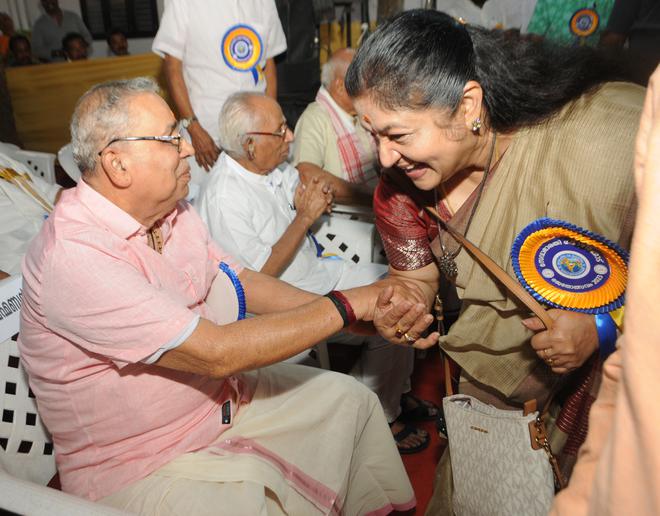If one considers the late Rashtriya Swayamsevak Sangh (RSS) ideologue P. Parameswaran as a theoretician, then Bharatiya Janata Party (BJP) leader P.P. Mukundan, who passed away in Kochi on Wednesday, was a realpolitik strategist who essentially built the party from the grassroots in Kerala.
Few leaders, apart from the late K.G. Marar and “Mukundettan”, as Mr. Mukundan was fondly known, enjoyed the same level of popularity among both BJP and RSS cadres. It’s no surprise that Prime Minister Narendra Modi, with whom he had a rapport, tweeted, “PP Mukundanji will be remembered for his simplicity and hard work. People from all walks of life respected him for his intelligence and grassroots connections. He worked tirelessly to strengthen the BJP in Kerala.”
Mr. Mukundan first gained prominence when he skillfully organised the Hindu Mahasammelan in Thiruvananthapuram in 1991. Subsequently, the RSS assigned him to the BJP as its State organisational secretary, a position typically held by a senior RSS pracharak. He held this role until 2004 and later became the regional organisational secretary for Kerala, Tamil Nadu, Puducherry, and Andaman and Nicobar.
When Mr. Mukundan was Kerala’s organisational secretary, Mr. Modi served as the national organisational secretary of the BJP. This connection brought them together, and Mr. Modi observed Mr. Mukundan’s leadership during the 2001 Assembly polls, especially the efforts to secure Manjeswaram and Kasaragod seats.
Interestingly, he never sought a personal meeting with Mr. Modi after the latter became Prime Minister in 2014. During that time, his relationship with the RSS and the BJP State leadership had its ups and downs.
Most of the current generation of leaders, including State president K. Surendran, general secretary M.T. Ramesh, vice presidents A.N. Radhakrishnan, Shobha Surendran and B. Gopalakrishnan and national council member P.K. Krishnadas, were mentored by Mr. Mukundan. However, none of them managed to replicate his organisational prowess or intellectual capabilities.
Close friends describe Mr. Mukundan as a strict disciplinarian with a knack for anticipating future developments. He had cultivated camaraderie with leaders across the political spectrum, community leaders of all religions and leading personalities in the film industry.

Mr. Mukundan was known for his strategic acumen and Machiavellianism, including testing the maverick political experiment , Co-Li-Bi (short for Congress-League-BJP) alliance. His exceptional abilities swiftly revitalised the party’s influence in the State.
However, some sources suggest that his ambitious nature and management style earned him both admirers and adversaries within and outside the Sangh Parivar. His growing popularity among RSS and BJP supporters eventually contributed to his downfall, leading to a decade-long political hiatus.
In 2006, Mr. Mukundan was abruptly removed from his role as the South India organisational secretary of the BJP due to clashes with RSS leaders. Many argue that both the BJP and RSS national leadership failed to fully harness his potential. As an RSS pracharak, he remained unmarried throughout his life.







